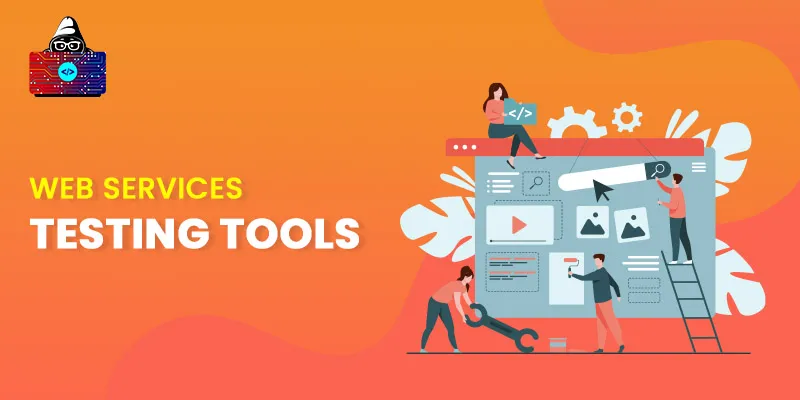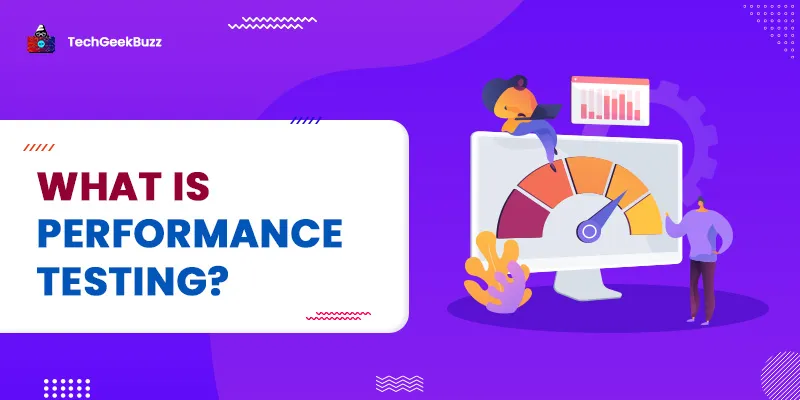Web services have made information availability across platforms easy and convenient for mass audiences. While many developers feel comfortable developing and designing a web service platform, debugging those web services is a different ball game altogether and needs serious attention. Thanks to technological advancements, today we have several automation tools that can test and debug web services quickly and efficiently.
Before we start discussing the best web service testing tools available, let's understand web services in detail.
What Do Web Services Mean?
A web service is a program that uses HTTP or HTTPS protocols to deliver and receive data over the internet or world wide web. It is platform-neutral, which means it can run on any operating system or with any programming language. For example, data from a Java program in the form of a web service can be accessed by a.NET platform application via an XML/JSON request.
Web services, in general, use a set of protocols and standards to transmit data between applications or systems. The two most popular protocols for interacting with web services are SOAP (Simple Object Access Protocol) and REST (Representational State Transfer). Let’s take a look at both the protocols below:
-
SOAP
SOAP is an ideal choice in scenarios where faster data transfer, rigorous application development, and environment security using multiple tools are the primary concerns. It is essentially a protocol service that exposes business logic through service interfaces. This protocol only supports the XML data format, and requires greater bandwidth and better security for communicating data.
-
REST
REST is suitable for integration, AJAX implementation, and providing connections for HTTP queries. Unlike SOAP, REST is more of an architectural style that specifies how a client should communicate with the server. REST exposes business logics using URIs or Uniform Resource Locators. It supports various data forms, including XML, JSON, and HTML, and uses less bandwidth.
Purpose of Web Service Testing
Web services testing can occur at various stages of the development and maintenance cycle of a software application. Web service testing examines the following:
- The capacity of the web service to handle exceptions and boundary value conditions for defined functions.
- Any inconsistencies, errors, and warnings.
- Expected performance of a program following repairs and updates.
- Performance of an application by putting it under load testing using various automation tools.
The following are some of the problems that web service testing aims to address and resolve:
- Security flaws: Any vulnerability in the web service API allows hackers to get access to the system and attack it.
- Performance flaws: Measuring web service response times make it possible to assess the end-to-end capabilities before a GUI is implemented. If the response time is too lengthy (slow), code refactoring can be required to improve application performance.
- Multithreading issues: Suppose the web service or API answer is encrypted and acts as an input for another API. In that case, attackers can decode the API response from the first API before it passes onto the second API. Web services testing can aid in the detection and resolution of such issues.
- Warning errors: Incorrect errors or warnings to the caller during business logic testing.
- Functional errors: Any API-related functional flaw, such as whether or not the API response performs the claimed function.
- Duplicacy flaws: Wasted code, redundant functionality, and flags.
- Reliability issues: These include difficulty connecting to the API and obtaining a response.
- Incorrect handling: Checks if valid parameter values were wrongly handled.
Web Services Testing Tools
Here are some of the most popular and talked about web services testing tools that you can consider using for your projects:
1. SOAPUI Pro
It is one of the most popular tools for testing REST and SOAP web services. SoapUI Pro is a reliable functional testing tool for SOAP web services as well as REST APIs. Also, it comes with a complete SOAP and REST API Test Automation Framework.
Key Features
- The GUI is simple to use and comes with facilities like point-and-click, drag-and-drop, and pre-built security checks.
- Allows testers to rapidly write and run functional, regression, load, and security automated tests.
- With robust data-driven testing, the tool allows external data sources to keep the tests more manageable.
- In a single test environment, SOAPUI Pro can provide end-to-end test coverage.
- Allows repurposing of functional tests as load tests with LoadUI Pro.
- Accepts a wide range of protocols and standards.
2. TestMaker
TestMaker web service testing tool is available for both SOAP and REST services. It is an efficient web services testing solution that comes loaded with a wide range of useful features.
Key Features
- Open-source and free to use.
- A single test script can handle functional, load, and performance testing, as well as production monitoring.
- It can reveal performance and functionality issues with web services.
- Simple migration process.
- Tests can be conducted in the cloud or on a grid.
3. Katalon Studio
This is an all-in-one automation tool that has simplified API and online testing for over 850,000 teams and organizations. It comes with the ability to help scale mobile and desktop testing for teams.
Key Features
- Equipped with a simple test creation interface with record and playback, pre-defined project templates, and built-in keywords.
- Option to migrate tests from SoapUI, Postman, and WSDL.
- Supports requests for REST, SOAP/1.1, and SOAP/1.2.
- Also supports self-healing methods, data-driven testing, the page-object model design, and BDD to make maintenance easier.
- One can increase the test reusability by using similar capabilities and test objects across projects.
- Katalon Studio creates reports with insightful graphs of essential data and real-time notifications after each run (Slack, Git & Microsoft Teams).
4. WebInject
WebInject is a free web service testing tool that lets you automate the testing of online services and web applications. It provides some top-notch features with stable ROI.
Key Features
- Available as open-source.
- Supports all types of testing, including functional, acceptability, and regression.
- It allows the use of HTTP APIs to test various system components.
- Allows real-time monitoring of the timings of responses.
- Integration with different test frameworks and apps.
- It is suitable for testing web service protocols like SOAP and XML-RPC.
5. Studio Stylus
Studio Stylus is another popular web services testing tool. It comes with a call composer, which serves as a web service tester. This is a handy tool for testing web services efficiently.
Key Features
- It is a licensed product.
- Supports the majority of web service basic standards, including WSDL, SOAP, and UDDI.
- The built-in XML IDE makes it simple and easy to find, analyze, and invoke web service functions.
- Comes with XML mappers, schema editors, and XSLT debuggers.
6. SOAPSonar
SOAPSonar is a tool that allows you to test web services quickly, and it is a licensed product.
Key Features
- It is machine-agnostic and sends and receives requests directly.
- To conduct functional and regression tests on web services, users can create and maintain test cases.
- Allows comprehensive security testing of web services.
- Test results can be compiled into reports in pdf, CSV, and XML formats.
- Allows evaluation of scalability and resilience of web services.
- While importing WSDL, it can efficiently identify and report interoperability problems.
- It can detect vulnerabilities in online services.
7. SOAtest
SOAtest is a web service testing automation tool that offers highly reliable software testing solutions. It is a licensed product.
Key Features
- Provides excellent support for REST web services.
- Supports functional, load, and security testing.
- Allows real-time error detection.
- Provides service virtualization.
- Validation on several levels is possible through SOAtest.
8. TestingWhiz
TestingWhiz is equipped with everything essential for efficient web service testing. It assists in the automation, execution, and management of tests. The tool provides a list of amenities for its users.
Key Features
- TestingWhiz is a licensed product
- For web services, it offers both functional and non-functional automated testing.
- Examines the behavior of online services.
- Tests how the web service interacts with the WSDL methods and interfaces over HTTP.
- It can also examine if the web service adheres to the business logic and provides the expected outcomes.
- It can bring down the time required to write test cases.
9. Postman
Postman is a powerful GUI-based web service testing tool for HTTP/REST web services. It is a licensed web service testing tool trusted by developers and professional software testers.
Key Features
- Supports a wide range of platforms, including macOS, Windows, Linux.
- It can speed up the API testing process.
- Simple user interface that is easy to understand.
- Available for free.
10. Storm
Strom is a free online web service testing tool that is useful for evaluating the performance of web services on different parameters.
Key Features
- Written in the F# programming language.
- Supports a range of programming languages, including .NET and Java.
- It can dynamically execute complex web service methods.
- Allows testing of various web services.
11. Jmeter
To execute and load test SOAP/REST web services, you can use Apache JMeter. You can leverage this tool to eliminate testing-based risks.
Key Features
- It is an open-source tool.
- Comes with a feature-rich IDE that allows efficient testing of web services and APIs.
- Supports HTML reporting with dynamic data commanding style.
12. vREST
vREST is the solution to use if you need to automate testing of HTTP/REST web services by mitigating any possible risks.
Key Features
- Equipped with recording and playback capabilities.
- Supports localhost, internet, and intranet.
- It's easy to get started with this tool.
- Reduces testing time significantly.
13. LoadUI NG Pro
The professional version of LoadUI is LoadUI NG Pro. LoadUI NG Pro simplifies API load testing for REST and SOAP-based web applications.
Key Features
- Executes API load testing quickly and efficiently.
- Allows real-time testing and reporting.
- LoadUI NG Pro is a mimicking API.
- It takes advantage of dynamic data for testing.
- Supports functional testing.
14. Runscope
Runscope is a tool that allows you to determine whether an API is faulty in any manner. Its extensive features and ease of use make it a web service testing tool worth considering.
Key Features
- Facilitates web service testing and API monitoring.
- Allows testing of Complex APIs.
- Available for OS X, Linux, and Windows.
- Supports a wide range of notification services.
15. Rapise
Rapise automates and simplifies web service testing. It is an efficient solution for programmers and software testers. Supporting scriptless automation, Rapise adds elevated ease and speed to the testing process.
Key Features
- It is possible to test apps on the desktop, mobile, and online.
- Supports recording and playback.
- Adaptable and scalable.
- Supports agile regression testing .
16. HttpMaster
HttpMaster's increased support makes web services testing easier. It is one of the most popular web service testing tools. The wide range of amenities and features offered further elevates its performance.
Key Features
- Supports REST web services.
- Equipped with a responsive user interface that adapts to the user's needs.
- Supports codeless testing.
- A command-line interface is available for automated operation.
Conclusion
When it comes to automated web service testing, specifically designed tools can help. These specifically designed Web services testing tools highlight the defects and breaches in the unreliability of the application which can otherwise be difficult to tackle. In addition, the widely available web services testing tools make the whole testing process easy and doable in no time. The above-mentioned list has a wide range of tools covered. Some are free, some are licensed and some can only be leveraged for paid plans. But, all are efficient and provide optimum automation, accuracy, and speed during the testing process.
People are also reading:
- Why API are Used in Cloud Services
- REST API Interview Questions
- What is Software Testing?
- Types of Software Testing
- Regression Testing Tools
- What is Software Testing Life Cycle (STLC)?
- Best API Testing Tools
- Top Agile Testing Tools
- Best Integration Testing Tools
- Usability Testing Tools
- Mobile Application Testing Tools



![What is Waterfall Model? [Phases, Pros, & Cons]](/media/new_post_images/Waterfall_Model.webp)

Leave a Comment on this Post